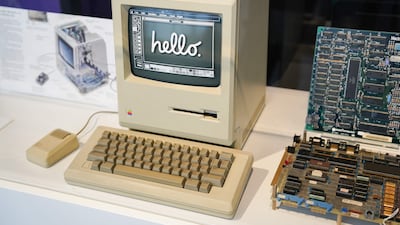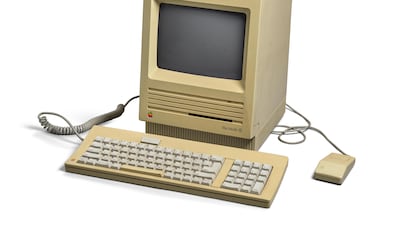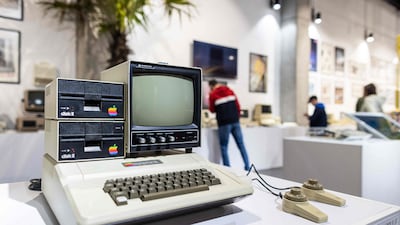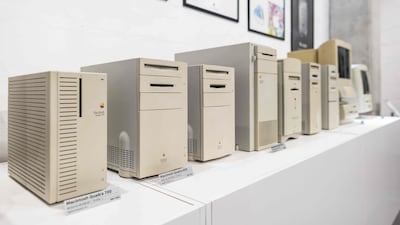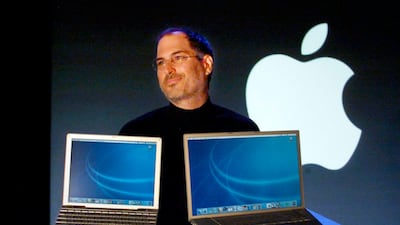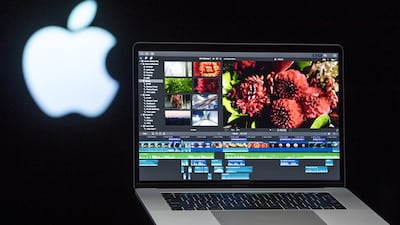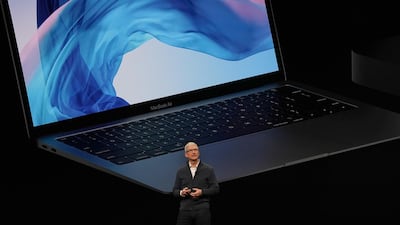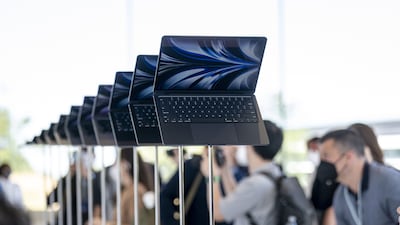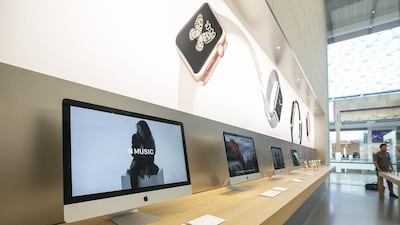Apple announced its largest share buyback programme, worth $110 billion, on Thursday after reporting an annual drop in its March quarter net profit and revenues.
Apple’s chief financial officer Luca Maestri said the board has authorised the share repurchases “given our confidence in Apple’s future and the value we see in our stock”.
The Cupertino-based company reported a 2.2 per cent annual drop in the 2024 fiscal second-quarter net profit to more than $23.6 billion. Its earnings per share stood at $1.53.
Revenue during the January-March period dropped more than 4 per cent to $90.8 billion, slightly exceeding analysts’ estimates of $90 billion.
But chief executive Tim Cook said he expects a sales growth in the current quarter as the company increases its investment on artificial intelligence-driven features that will be announced in coming months.

“More than ever in the past decade, the company needs new products and solutions that will shift its behemoth operating costs back into the sustained growth path,” Thomas Monteiro, senior analyst at Investing.com, told The National.
"Against this backdrop, Apple will need massive mid-term investor support and trust, which is why it announced its largest-ever round of buybacks.”
After the earnings announcement, Apple stock surged 11.6 per cent to trade at $184.64 a share in after-hours trading on Thursday.
It closed 2.20 per cent up at $173.03, giving the company a market value of $2.67 trillion.
Its stock has dropped almost 7 per cent since the start of the year.
Falling iPhone sales
iPhone sales accounted for more than half of the company's total revenue in the last quarter.
They dropped 10.4 per cent to nearly $45.9 billion in the quarter from the year before period, missing analysts’ estimates of $46 billion.
Analysts said the decline in sales indicates a lacklustre demand for the latest generation of iPhone 15 series, which was launched in September.
In its defence, Mr Cook said last quarter’s iPhone sales faced tough comparison with the previous year period, during which the company recorded $5 billion in deferred iPhone 14 sales stemming from supply issues caused by the Covid-19 pandemic.
The company’s total revenue from its services division grew about 14 per cent annually to almost $23.9 billion, while revenue from wearables, home and accessories products dropped 9.6 per cent annually to more than $7.9 billion.
It was an all-time revenue record in the company’s services division.
Revenue from iPads and computers dropped almost 6 per cent to more than $13 billion.
“Thanks to very high levels of customer satisfaction and loyalty, our active installed base of devices has reached a new all-time high across all products and all geographic segments,” said Mr Maestri, without disclosing the exact number.
Why Tim Cook is optimistic about China
Apple’s sales in the Americas region accounted for more than 41 per cent of the company's total second-quarter revenue, with more than $37.2 billion.
It was followed by Europe and the Greater China market (China, Hong Kong and Taiwan), which added $24.1 billion and $16.3 billion, respectively, to the company’s revenue.

In Europe, sales remained flat while they dropped 8 per cent in the Greater China market.
Apple is facing stiff competition in China from local brands such as Huawei, Xiaomi and Oppo. But Mr Cook is optimistic about the Chinese market’s future potential.
“I feel good about China. I think more about long term than to the next week or so,” Mr Cook told CNBC.
Japan and the rest of the Asia Pacific market added more than $12.9 billion to Apple’s second-quarter sales, an annual drop of 15 per cent.
Apple said its board of directors had declared a cash dividend, payable on May 16, of $0.25 for each share of the company’s common stock.
Its cash and cash equivalents surged 9.1 per cent annually to more than $32.6 billion as of March 30.
Why Apple needs more futuristic products like Vision Pro
In February, Apple also entered the augmented reality headset market with the launch of the Vision Pro.
With a hefty price of almost $3,500, the product has had a slow start and may take few years before it significantly contributes to Apple's revenue, analysts said.
"However, the sustained downtrend in iPhone sales and pressured margins show that the revenue growth plateau is more than a regional problem and should keep on deepening without new, more innovative products," Mr Monteiro said.
Apple is expected to announce a range of new products at an event next week, and at its Worldwide Developers Conference in June.


